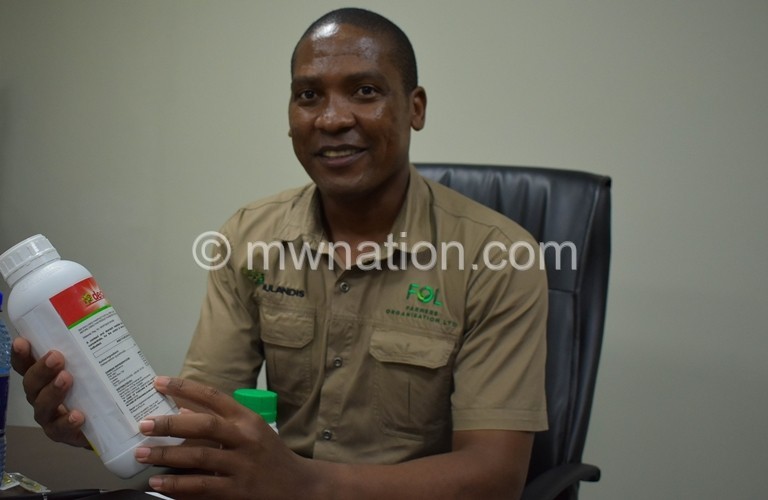Six pesticides certified to deal with fall armyworms
As the country continues to grapple with fall armyworms, Farmers Organisation Limited (FOL) says six pesticides have now been approved and certified to deal with the strenuous pest.
Briefing the media in Blantyre on Wednesday, FOL national sales and marketing manager Ronald Chilumpha said initially the organisation in collaboration with the Ministry of Agriculture, Irrigation and Water Development identified ten pesticides but after conducting vigorous testing and research the six pesticides were approved.

Among the certified pesticides include Stewards 150 EC, Belt 480 SC, proclaim Fit, Chlorpyrifos 480 EC, Decis Forte, Deltanex 25 EC imported from Europe, United Sates of America, China and India.
Chilumpha said the pesticides which have proven to be of less toxic can easily be accessed in agro dealer shops such as farmers World, Agora and Kulima Gold.
However, he was quick to point out that for the pesticides to work effectively; there is a lot that needs to be followed particularly by small scale farmers which include Integrated Pest Management.
“These pesticides have proven to be effective even in countries such as Zambia, Zimbabwe and South Africa where they are already in use, it is however important that farmers combine all methods of dealing with this very difficult pest among them early planting, alternate on the pesticides, early weeding and seed dressing to achieve maximum results,” said Chilumpha.
In 2017, the Pesticides Control Board deregistered a number of pesticides due to toxicity issues, since then FOL has been working on replacing such chemistry with softer and greener alternatives.
Jumping in, FOL agronomist and customer relations manager Barney Kamvazina said the organisation is also in a process of registering a maize seed dressing pesticide called Fortenza Duo for control of pests in the early days of planting.
According to Kamvazina, if seed is dressed, there is an increase of up to 23 percent in yields.
Said Kamvazina: “These pesticides are affordable and we are working with agriculture extension workers in helping small scale farmers. Our goal is that we reach every farmer because if a section is left out, the pests would spread to those fields with already treated crops.”
According to the 2018 Malawi Vulnerability Assessment Committee (MVAC) Report, about 3.3 million people are facing hunger until the next harvest in March 2019. The figure represents 18 out of every 100 Malawians.
This year’s poor food output, mostly for maize—the country’s staple grain—is attributed to unfavourable weather conditions characterised by extended dry spells which caused moisture stress in almost all districts as well as fall armyworms.





